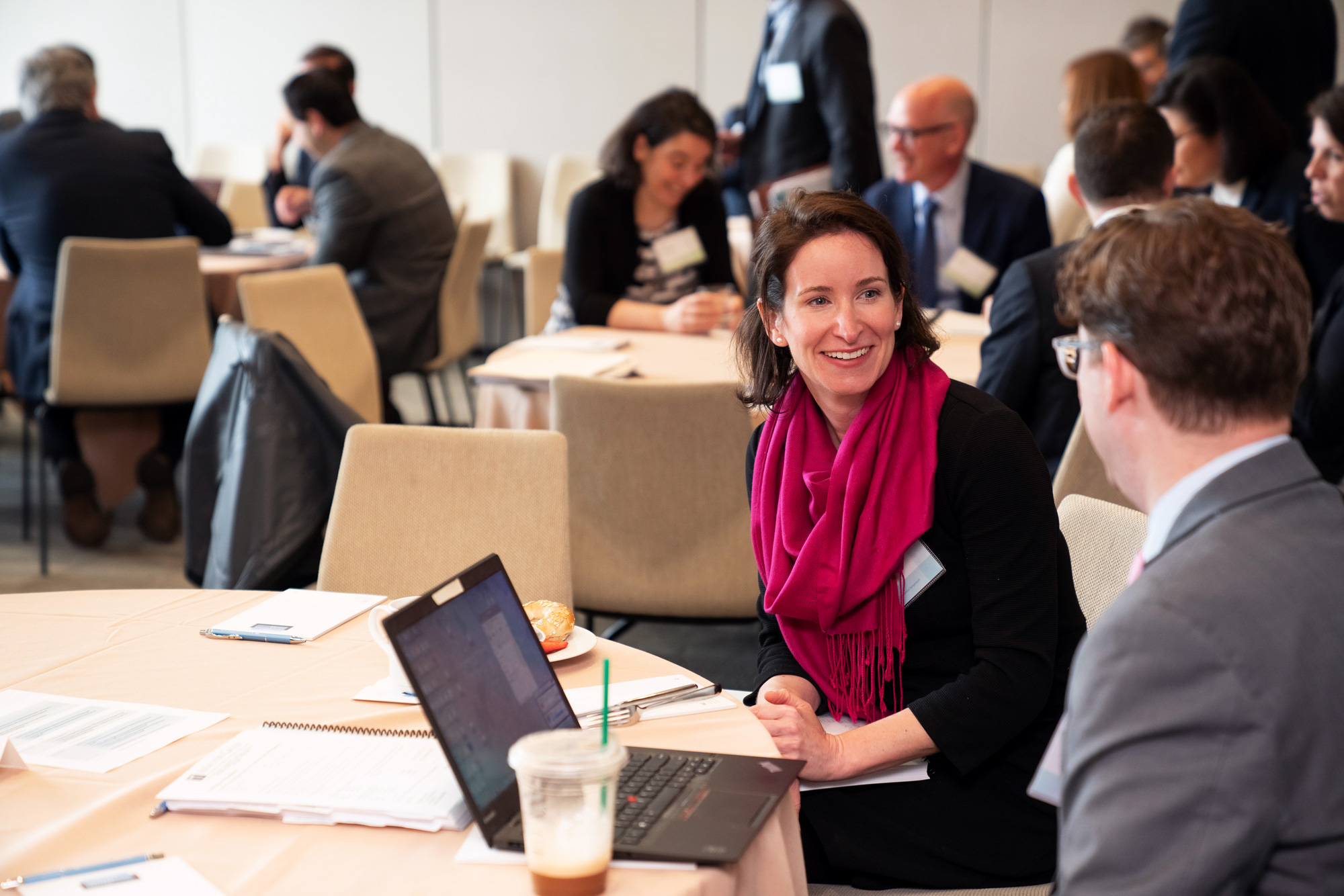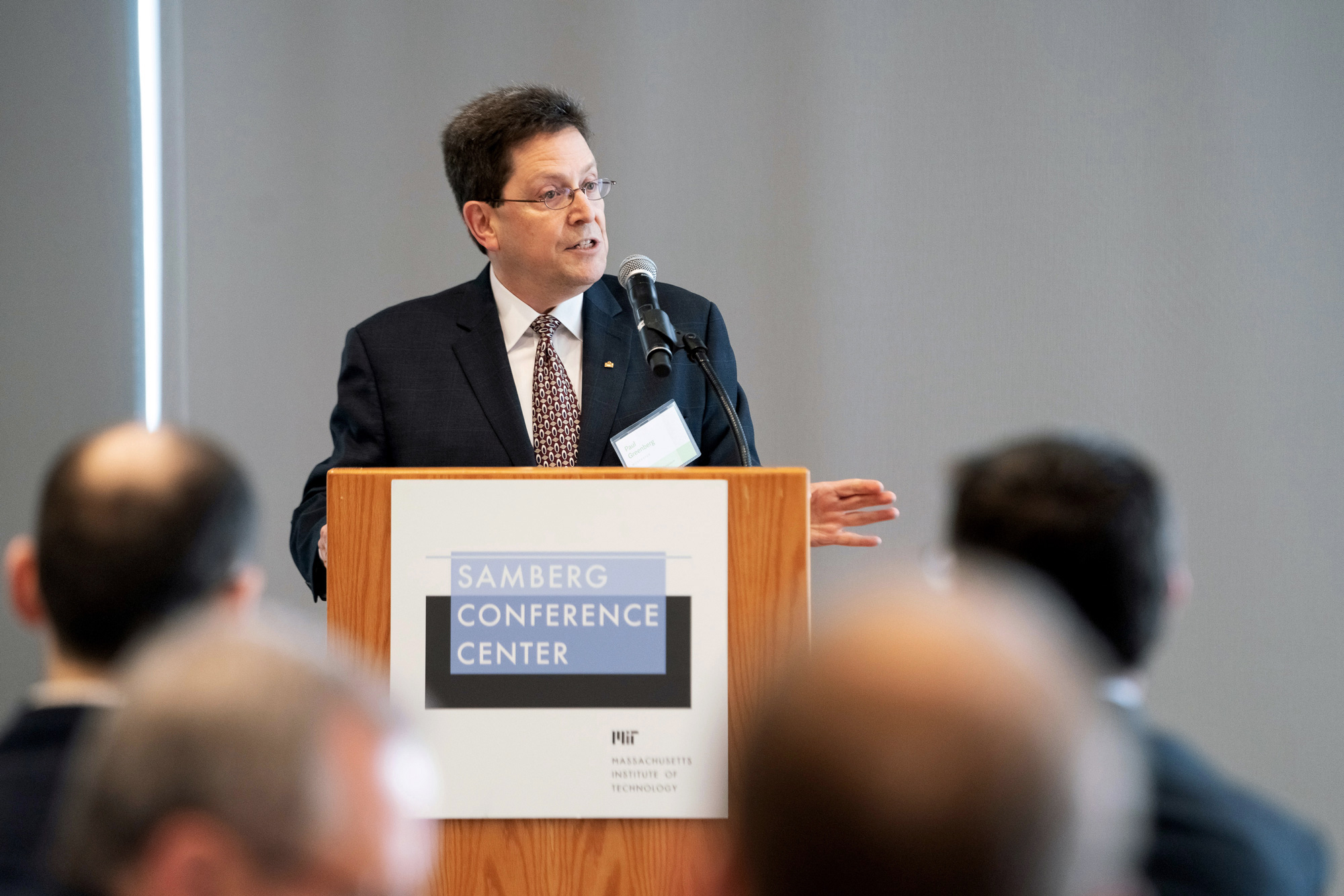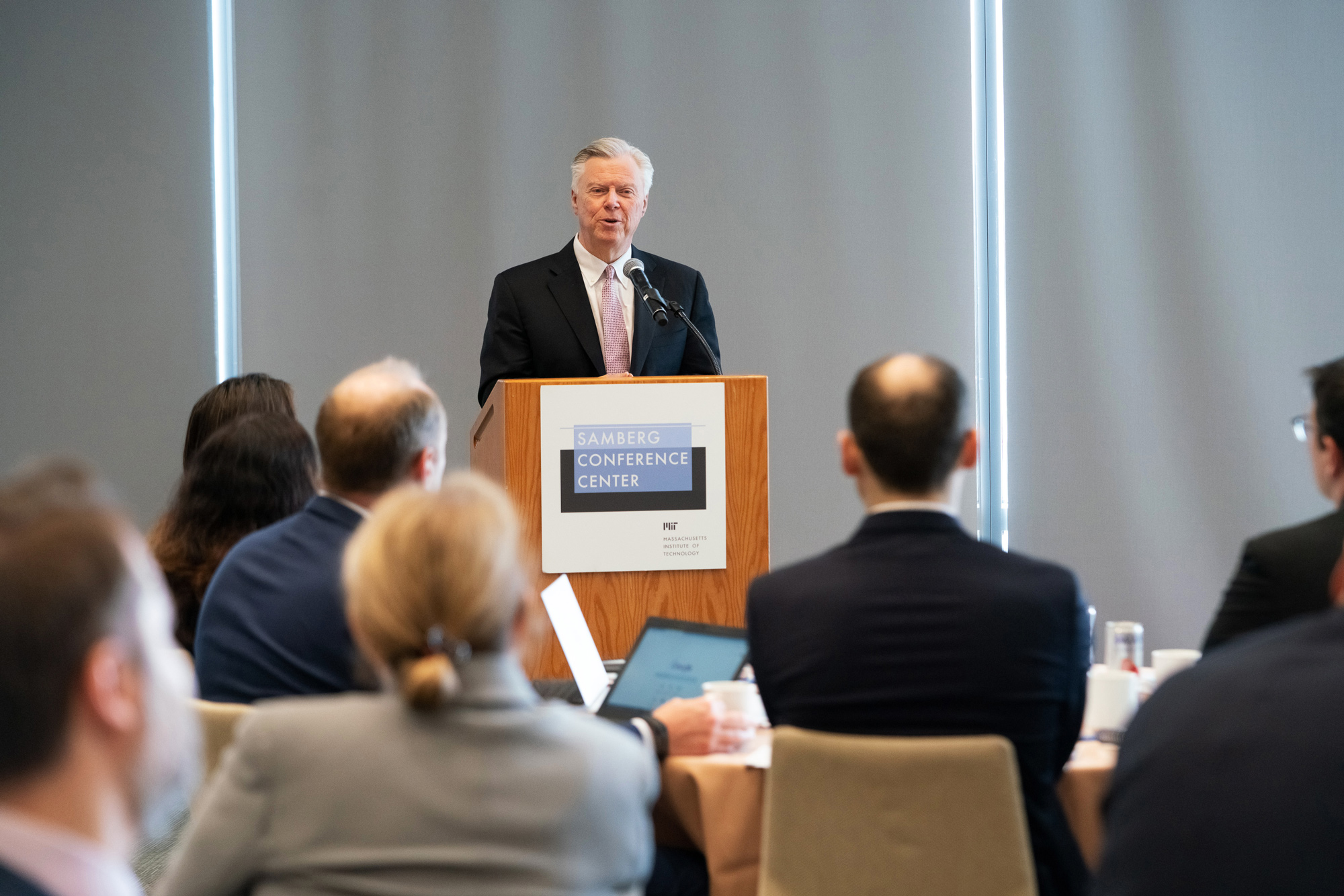-
Symposium Examines Critical Economic Issues in Life Sciences Litigation
On May 6, 2019, Analysis Group hosted its annual Law & Economics Symposium on current issues in life sciences litigation at the MIT Sloan School of Management.
The event brought together academic experts, industry counsel, and Analysis Group consultants for discussions on litigation topics often encountered by pharmaceutical, biotechnology, and medical device companies today. A key goal was to facilitate the exchange of views on critical law and economics questions in a forum that included a variety of stakeholders. David Schmittlein, Dean of the MIT Sloan School of Management, opened the Symposium with a warm welcome, noting the many points of connection between Analysis Group and the MIT Sloan School.

Setting the Agenda: A Fireside Chat
One major theme of the gathering was the potential tradeoffs between access to treatments already on the market (affordability), and access to future treatments that have yet to be developed (innovation). That was the issue underlying much of the keynote event that opened the Symposium – a fireside chat between two former commissioners of the Food and Drug Administration: Mark McClellan (now director of the Duke-Margolis Center for Health Policy at Duke University) and Scott Gottlieb (now resident fellow at the American Enterprise Institute). Moderated by Managing Principal Crystal Pike, co-organizer of the Symposium, the discussion between the two former regulators also addressed topics such as the role played by real-world evidence at the approval and post-approval stages; First Amendment issues in the context of off-label promotion investigations; and the distinct challenges faced by private and public payers in trying to provide access to transformative therapies and improve health outcomes.

A Newsworthy Topic: Drug Pricing
Many of the themes discussed during the fireside chat also arose during a plenary session on drug pricing introduced by Analysis Group CEO and Chairman Martha Samuelson (in the above left photo), and moderated by Managing Principal Noam Kirson. The participants included (from left to right in the above photo): Dr. Gottlieb, Rena Conti of Boston University, Craig Garthwaite of Northwestern University, Jennifer Bryant of PhRMA, and David Cutler of Harvard University. The session began with the question of why drug pricing gets so much attention even though drug costs represent only 10–15% of health care spending in the United States. This led to discussions concerning innovative approaches to pricing, efforts to regulate and reduce drug prices, and the impact of competition on prices.
A Plethora of Ideas: Breakout Sessions

Analysis Group Managing Principal Aaron Yeater moderated a panel session on the effect of big data on product liability litigation involving pharmaceuticals and medical devices. Participants included (from left to right in the above left photo): Analysis Group Managing Principal Mei Sheng Duh and Senior Advisor Bruce Strombom, Carlton Wessel, formerly of Pfizer, and Robert Platt of McGill University. The panelists discussed a variety of current topics of interest, including the recent evolution of product liability litigation; the relationships among evidence, causation, and damages; and how those relationships have changed with the introduction of social media, natural language processing, and machine learning. In so doing, the panel identified common challenges with successfully presenting high-quality scientific analyses to judges and juries. They also highlighted the problem of responding to multiple low-quality studies that collectively crowd out higher-quality studies, which can be much harder to design and implement.
Another breakout session explored the future of False Claims Act (FCA) and Anti-Kickback Statute (AKS) cases. Ms. Pike chaired the panel, which brought together Analysis Group Managing Principal Brad Rice, Louis Rossiter of William & Mary, Toni-Ann Citera of Celgene, Anupam Jena of Harvard Medical School and Massachusetts General Hospital, and Jonathan Ketcham of Arizona State University (from left to right in the above right photo). Among the topics considered by the group were: company compliance initiatives and challenges; the use of data analytics to address materiality requirements post-Escobar; and analytical approaches to assessing causation and damages as medicine gets increasingly complex and personalized. Panel members emphasized that existing correlation studies between payments to physicians and prescribing are insufficient to establish causation. Moreover, they cautioned, even with any increase in prescribing, it is important to evaluate the extent to which patients and payers benefit.
 Paul Greenberg, Director of Analysis Group’s Health Care practice and co-organizer of the Symposium, moderated a session on the economics of biosimilars. Panel members included Anthony LoSasso of the University of Illinois at Chicago, Analysis Group Managing Principal Carla Mulhern, and Analysis Group Principal Richard Mortimer (from left to right in the above left photo). In exploring why biosimilars have not yet penetrated the US market consistent with expectations, the panel focused on several factors, including higher-than-expected costs of bringing biosimilars to market; the lack of an automatic pharmacy substitution comparable to that of generic drugs; and complexity of the associated intellectual property. This session included a lively conversation between the panel members and the audience.
Paul Greenberg, Director of Analysis Group’s Health Care practice and co-organizer of the Symposium, moderated a session on the economics of biosimilars. Panel members included Anthony LoSasso of the University of Illinois at Chicago, Analysis Group Managing Principal Carla Mulhern, and Analysis Group Principal Richard Mortimer (from left to right in the above left photo). In exploring why biosimilars have not yet penetrated the US market consistent with expectations, the panel focused on several factors, including higher-than-expected costs of bringing biosimilars to market; the lack of an automatic pharmacy substitution comparable to that of generic drugs; and complexity of the associated intellectual property. This session included a lively conversation between the panel members and the audience.Jeff Cohen, Analysis Group Senior Advisor and co-organizer of the Symposium, moderated a panel on monopolization claims in pharmaceutical markets that included Amanda Starc of Northwestern University, Matthew Silversten of Astellas, Analysis Group Managing Principal Divya Mathur, and Mark Duggan of Stanford University (from left to right in the above right photo). The panel considered a range of antitrust topics in the bio-pharmaceutical space, including current legislative initiatives to increase competition; a review of the continued series of reverse payment matters in the wake of Actavis; and the role of pharmacy benefits managers (PBMs) in the supply chain. The panel also compared competitive aspects of bio-pharmaceutical acquisitions with those in the technology sector.

Analysis Group Managing Principal Lisa Pinheiro moderated a breakout session on cutting-edge methods used in damages analyses in life sciences litigation. Each participant focused on a particular methodology and provided examples of its use in life sciences litigation: Joseph Doyle of the MIT Sloan School of Management spoke about the use of experimental and quasi-experimental methods; Analysis Group Principal Rene Befurt highlighted the use of surveys; Natalie Mizik of the University of Washington described relevant econometric tools; Analysis Group Managing Principal Mihran Yenikomshian focused on machine learning; and Principal Jimmy Royer discussed using natural language processing. (Panelists are seen in this order in the above left photo.)
Looking Ahead
To close out the day, Analysis Group Co-founder Bruce Stangle (in the above right photo) summarized the many learnings from each session and invited everyone to the next Law and Economics Symposium on current issues in the life sciences, which will take place at the MIT Sloan School of Management on June 8, 2020. ■








